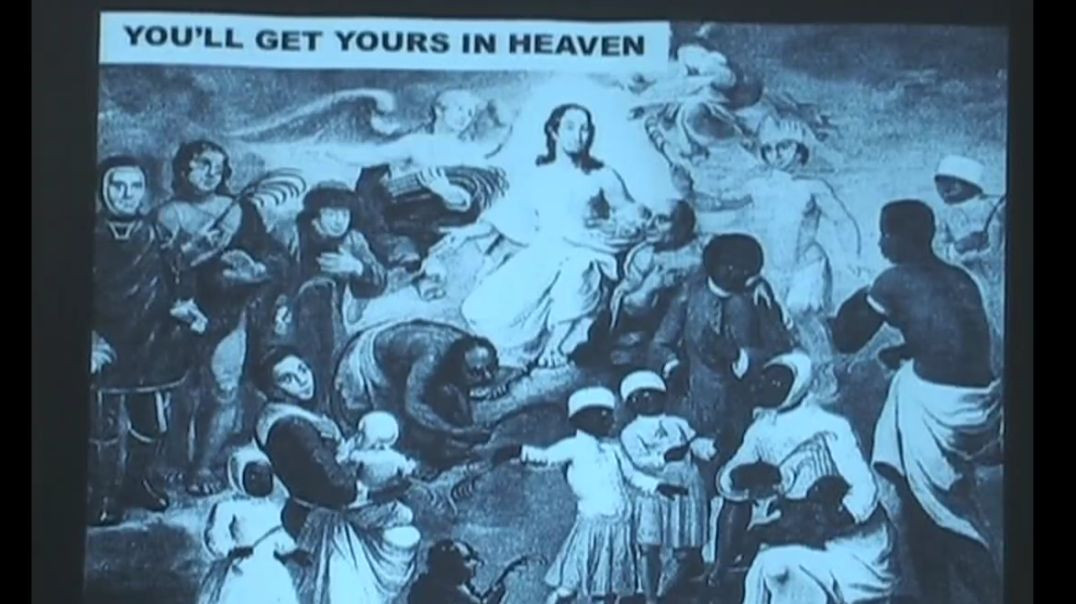Spirituality
Welcome back to Powered by Nyame (PBN). This week, at PBN, we guide you through a fundamental question we get often enough: can I become or be made into a spiritualist-healer? Join us as we offer, first, some background for context, and, then, secondly, address the question from multiple perspectives.
Join this channel to get access to perks:
https://www.youtube.com/channe....l/UCykQ4Bi0UQj7LcL-2
We are so honored to host a community book event for Marimba Ani's Let the Circle Be Unbroken
A New and Expanded Edition With an Introduction, Preface and Praise Song for the Ancestors!
Interview of Mama Marimba Ani by Listervelt Middleton on For the People about her book, Let the Circle Be Unbroken.
THE AFRIKAN REDEMPTION LECTURE SERIES.
PSYCHO - SPIRITUAL WELLNESS : HEALING THE WOUNDS OF THE MAAFA THROUGH AFRICAN SPIRITUALITY.
...........................................................
Dr. Wade Nobles is one of the most prominent theoretical scientists of Afrikan Psychology and a leading researcher on social systems and Psycho - cultural development of the Black family. In this presentation, Dr. Nobles teaches us what it means to be human from an Afrikan perspective. He poses the grand western narrative up against the Afrikan=Black narrative with concrete historical examples of each in practice. Dr. Nobles breaks down the practical usage of Afrikan Spirituality as a tool of healing and repairing nearly broken souls. He provides solutions through language and logic, through memory and imagination to recapture the essence of our Ancestors. To be Afrikan. To be family. To be Awesome.
© GYE NYAME PRESS 2015
Okuninibaa Jerika Johnstone On How To Quiet Our Busy Minds And The Many Different Ways To Meditate P
➡️ Become A 'I Never Knew Tv' YouTube Member:https://www.youtube.com/channe....l/UCwZ2vurIl_X8rv0Dv more reasonings from Okuninibaa Jerika Johnstone:Pt.1 https://youtu.be/F5g4aLnwfkgPt.3 https://youtu.be/NxD6l-Naib4Okuninibaa Jerika Johnstone is a certified Kemetic teacher and educator In pt.2 of this reasoning Okuninibaa Johnstone gives advice on how people can quiet there busy minds when trying to meditate. Okuninibaa Johnstone also explains why their a numerous ways a person can meditate.Please click link below to learn more about Okuninibaa Jerika Johnstone and her work:https://yoga4philly.org/team-m....embers/dr-jerika-joh Tune into 'I NEVER KNEW 📻'🇲🇱Roots, Rock, Reggae Music🇲🇱Hosted By : Jr of 'I Never Knew Tv'https://www.WLOY.orgSunday 9 -11 AM ESTWednesday 8- 10 AM ESTThursday 10- Noon AM EST#meditation #ineverknewtv
Okuninibaa Tafari-Ama On How Our Ancestors Never Lost Their African Spirituality While Enslaved In T
➡️ Become A 'I Never Knew Tv' Youtube Member:https://www.youtube.com/channe....l/UCwZ2vurIl_X8rv0Dv 'Throw Forward' clip from thought leader, author, and lecturer Okuninibaa Imani Tafari-Ama.In this clip, Okuninibaa Imani Tafari on how despite the popular narrative, Africans did not lose their traditional African spiritual whil being enslaved in the west.Click link below to watch full reasoning from Okuninibaa Imani Tafari-Ama:https://youtu.be/ksNxfTnd_cY➡️ Tune into 'I NEVER KNEW 📻'🇲🇱Roots, Rock, Reggae Music🇲🇱Hosted By : Jr of 'I Never Knew Tv'https://www.WLOY.orgSunday 9 -11 AM ESTWednesday 8- 10 AM ESTThursday 10- Noon AM EST#slavery #ineverknewtv
How can a Black man have a white God ? The weaponization of religion to facilitate the destruction of the black race. How religion have been used as a tool to indoctrinate the Black mind into surrendering sovereignty to the white criminals and their satanic agendas.
........................................
From the Plantation to the Pulpit.
© 2008
Speaker : Ayo Kimathi AKA Irritated Genie of Soufeese.
Satan has taken over the economic, political, social, religious and spiritual culture of the Black community in America. And he is trying to wrestle a complete grip on the entire Afrikan world.
........................
Speaker : Ayo Kimathi AKA Irritated Genie of Soufeese.
Mfundishi Jhutyms details his journey in becoming a Kemetic Priest and a Grand Master in the Kupigana Ngumi system. In the full interview Mfundishi gives an overview of the history of Ancient Egypt (Kemet) and its relationship to Christianity, the Hebrews, the impact of Islam and gives his respects to some of the greatest warrior-scholars of our time.
Out of Darkness: Heavy is the Crown Vol.1 Now Available
Amazon Prime Video: https://amzn.to/3sq8ILU
AppleTV: https://apple.co/3hAVVRa
Google Play: https://bit.ly/3K6zqzk
YouTube Movies: https://bit.ly/3ED2htM
Vudu/Fandango: https://bit.ly/3rJmBVc
Vimeo: https://vimeo.com/ondemand/heavyisthecrown
DVD: https://bit.ly/3vyyMXG
Amazon [DVD]: https://amzn.to/3vVYzI7
Please Help Support Our Channel:
Cash App: https://cash.app/$buildingseven
PayPal: https://bit.ly/3KgCJo9
Patreon: https://www.patreon.com/buildingse7en
_____________________________________________
Visit Our Sites:
Online Store: https://these7encollection.com/
Site: https://www.buildingsevenmedia.com/
IG: @buildingseven
Website: https://www.outofdarknessfilm.com/
IMDb: https://www.imdb.com/title/tt16763048/
Facebook: https://www.facebook.com/outofdarknessfilm
IG: @outofdarknessfilm
NFT: https://opensea.io/collection/heavyisthecrown
Discord: https://discord.gg/gcvuJVtxxa
_____________________________________________
Out of Darkness Now Available:
Amazon Prime Video: https://amzn.to/347rvCO
AppleTV: https://apple.co/35rqcPV
Google Play:https://bit.ly/35JZBgy
Vimeo on Demand: https://vimeo.com/ondemand/outofdarknessextended
DVD: https://bit.ly/3ID1JoV
#ancientkemet
#moors
#hebrews
In this week's episode of Powered by Nyame, our topic is magic and the magical world we have and perhaps ought to live in. The modern world is but one version of reality, an artificial one at that. In spite of its seductive allure, of gadgets, devices, and virtual everything, it lacks a soul and remains without a guiding spirit. Making better machines is no substitute for making better human beings. The magical world of the ancients still exist, if we are receptive to it and the human impossibilities it makes possible.
This episode marks our one year anniversary. Please consider joining this channel to get access to perks:
https://www.youtube.com/channe....l/UCykQ4Bi0UQj7LcL-2










